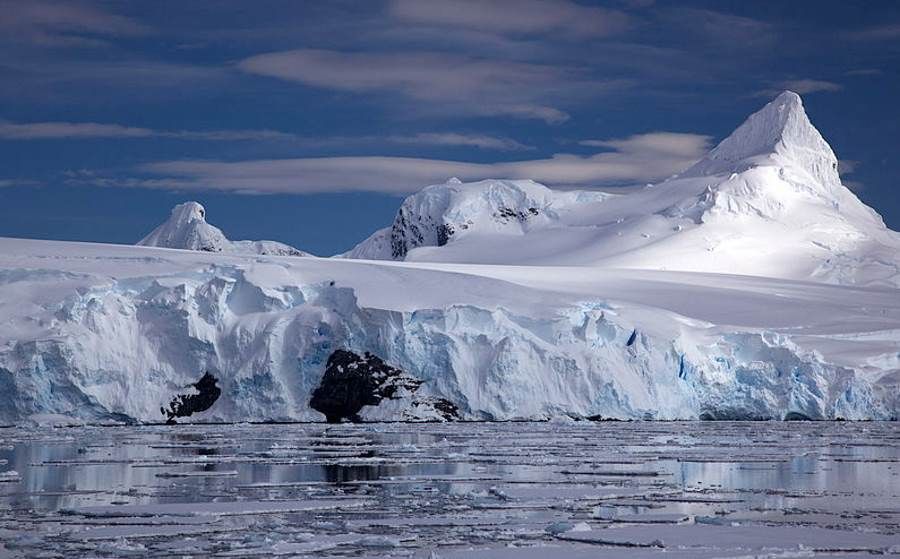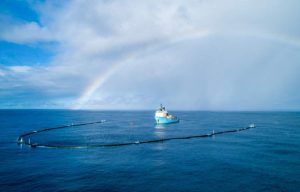The melting of Antarctica has accelerated rapidly in recent years

Antarctic melting has accelerated rapidly in recent years
Antarctica has lost three trillion tons of ice over the past 25 years, according to an analysis measuring changes in the continent’s ice cover. Ice loss has accelerated rapidly over the past five years.
Analysis of changes in the Antarctic ice sheet is wspoWith the combined efforts of more than 80 scientistsoin from around the world. This is the most complete work on the subject ever written. It was published in the pages of the journal „Nature”.
Researchers to determine the estimateoin the balance of the ice mass from 1992 to 2017 used satellite data. Their calculations show that global sea level rise is beingofossil fuels at this time by 7.6 mm., and the continent itself has lost three trillion tons of ice as a result of melting. Moreover, the loss of ice caps has accelerated dramatically in recent years.
Before 2012, the rate of ice loss held steady at about 84 billion tons per year, an annual contribution to sea level rise of 0.2 mm. However, after 2012, the melting accelerated rapidly. Between 2012 and 2017, Antarctica lost about 241 billion annuallyoin tons of ice, resulting in a sea level rise of 0.6 mm per year.
-The last decade has seen a surge in Antarctic ice loss, causing the level of morz is growing faster than at any time in the last 25 years – said Andrew Shepherd of the University of Leeds in the UK, wspopauthor of the publication and head of Imbie (Ice Sheet Mass Balance Inter-comparison Exercise).
Lod would melt fastest in the western part of Antarctica, where warm waters enter and melt ice frontsoIn ending up in the ocean. Although someore estimates for the eastern regionsoin the continent suggest that there may have even arrived ice caps, but in ogoln total, the balance still comes out negative.
– It is difficult to say when it started. At the time, we did not collect adequate data. But I can say with full confidence that it is currently too warm in Antarctica – admitted Shepherd. Satellite data on the Antarctic ice sheet has been systematically collected since the 1990s.
Researchers estimate that if the entire Antarctic ice sheet melted, the level of morz and oceanoin the suboThe salt would be 58 metersow. The apparent acceleration of melting in the latest satellite observations was enough to worry scientistsow. – The satellite data show us not only that the problem exists, but that it is growing every year, explains Isabella Velicogna of the University of California, Irvine.
New findings suggest that the Antarctic ice sheet may not be as resilient to global warming as once thought. In addition, it presents a very different picture of the continent’s potential contribution to the rise of theow morz and oceanow.
As part of the analysis, the researchers combined data from three genericow measurementoIn satellite imagery to track changes in the ice. Scanning satellites lod Antarctica using altimeters have gathered evidence of their volume, another type of satellite measurement has tracked the speed of glacial flowcow into the ocean, and a third type of observation calculated the gravity of land masses wokoł of the planet, weighing in the total ice caps. Together, it gave a more complete picture of the situation.
– Satellite measurements mobind us that the ice cover is much more dynamic than previously thought. If we look at the first report of the IPCC (Intergovernmental Panel on Climate Changeoł ds. Climate Change Committee) from 30 years ago, before we even took satellite measurements of the regionoin the polar regions, we will see that the ice caps in the ogole were not expected to respond to climate change. Unfortunately, this is not the case – pointed out Shepherd.
Putting the analysis in perspective, the huge gora ice caps, whichora broke away from Antarctica, specifically from the Larsen C glacier in July 2017. – one of the largest gor of ice in history, weighed in at about a trillion tons. From the data obtained by the scientistsow shows that in 25 years Antarctica has melted by three such goice rices.
– Indicateowks in the geological record suggest that current climate change causing ice loss in Antarctica is proceeding much faster than climate change in the distant past, Shepherd explained.
Sourceobackground: Science Alert, Live Science, fot. CC BY 2.0/ Flickr/ Jason Auch




